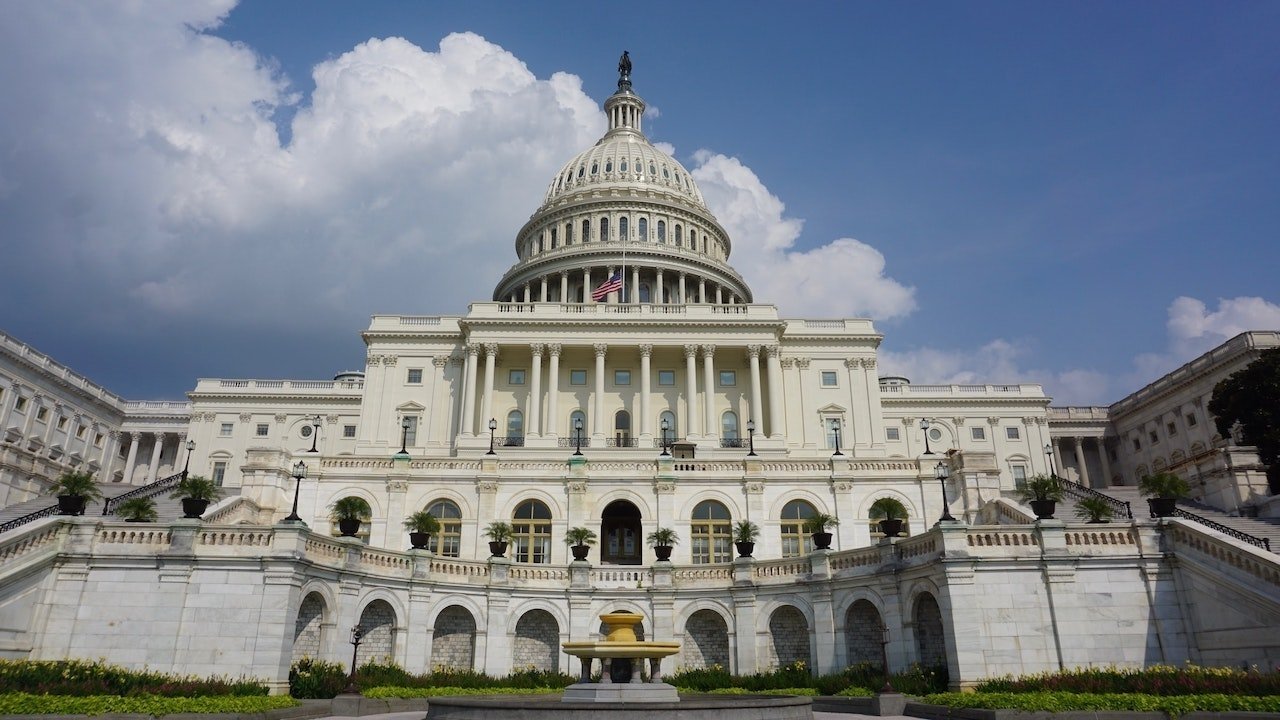The U.S. Senate Judiciary Committee will debate the "Open App Markets Act" on Thursday, a bipartisan bill that if passed as-is could impact how Apple manages the App Store.
U.S. lawmakers have been trying to curtail the market power the tech giants have over the rest of the industry. The Open App Markets Act, one attempt to do so by hitting app marketplaces, has reached a point where it gains greater scrutiny by lawmakers.
The Senate Judiciary Committee will be considering the Open App Markets Act in a debate set to take place on Thursday, reports Reuters. If brought into law, the bill would apply restrictions on major app marketplaces, including Apple's App Store and the Google Play Store.
The bill would apply measures, such as preventing app stores from making developers use the store's built-in payment systems for in-app purchases instead of third-party mechanisms. There's also measures to stop app store operators from punishing apps that use different pricing structures through an alternate payment platform to what is offered via the app store itself.
It also includes elements to stop app marketplaces from using non-public information to compete with third-party entities.
Democrat Senator Richard Blumenthal framed the bill as a way to "stop Apple and Google from crushing competitors and undercutting consumers. Breaking the ironclad grip of these two behemoths on the multi-billion dollar app market is long overdue."
Republican counterpart Senator Marsha Blackburn added the hearing "brings us one step closer to holding big tech companies like Apple and Google accountable. Tech giants are forcing their own app stores on users at the expense of innovative start-ups."
Following the announcement, the Coalition for App Fairness executive director Meghan DiMuzio sent a statement to AppleInsider applauding the oncoming debate. "Moving this legislation forward sends a clear and unambiguous message that monopoly control of the app ecosystem is no longer acceptable."
DiMuzio, head of the frequent Apple critic which counts Epic Games and Spotify among its members, believes the bill "directly addresses app store providers' anti-competitive policies that harm developers and consumers." It also believes "government action is necessary to bring competition to the digital marketplace and gatekeepers cannot be trusted to voluntarily self-regulate."
Apple has attempted to combat the bill, with the tech giant-backed lobbying group Chamber of Progress pushing back against it in August. "I don't see any consumers marching in Washington demanding that Congress make their smartphones dumber. And Congress has better things to do than intervene in a multi-million dollar dispute between businesses," said group CEO Adam Kovacevich at the time.
Apple also implemented changes to App Store policies in the wake of a developer lawsuit in September, but they apparently weren't enough to appease lawmakers.
The debate in the Senate is not the only one going on behind Washington D.C.'s doors. Alongside the Senate bill, the U.S. House of Representatives has its own companion bill that is going through a similar examination process.
In October, the U.S. Senate debuted another bill that aimed to stop store operators from promoting its own services over competitors in search results.
 Malcolm Owen
Malcolm Owen







-m.jpg)






 Amber Neely
Amber Neely



 Christine McKee
Christine McKee


 William Gallagher
William Gallagher


-m.jpg)






6 Comments
A. Psystar lawsuit: verdict was that Apple's hardware cannot be considered a monopoly unto itself. Apple could limit installation of its operating systems to its own hardware and could not be forced to allow 3rd parties to install it on Mac clone systems they were selling to the general public.
B. BlueMail lawsuit: dismissed by judge due to BlueMail's success on alternate platforms with the same app. That success (which BlueMail touted in their own marketing) was considered proof that Apple's control of the App Store did not rise to the level of an anti-trust issue. BlueMail was not dependent on the App Store.
C. Epic lawsuit: verdict did not conclude that federal anti-trust laws had been violated.
Obviously, Congress can still pass legislation that regulates the App Store regardless of those rulings, but they can't honestly claim it's due to anti-trust issues. The anti-trust claims have failed over and over again in court per Apple's control of its hardware/OS/store.
I agree, this bill is a smoke screen to try to create an issue to make it look like they are doing some good. How about an infrastructure bill that doesn’t have 30tons of unrelated stuff attached, to try to sneak pork through in a bill that addresses something a majority agrees is needed.
Is this the same Senate Judiciary that investigated the second and the first impeachment hearing?
But didn’t find anything??